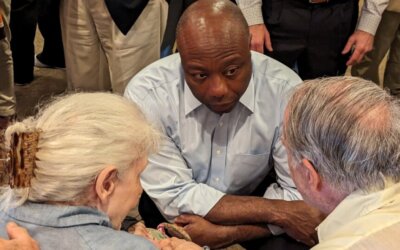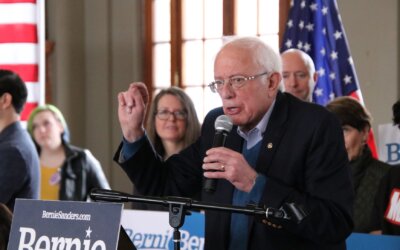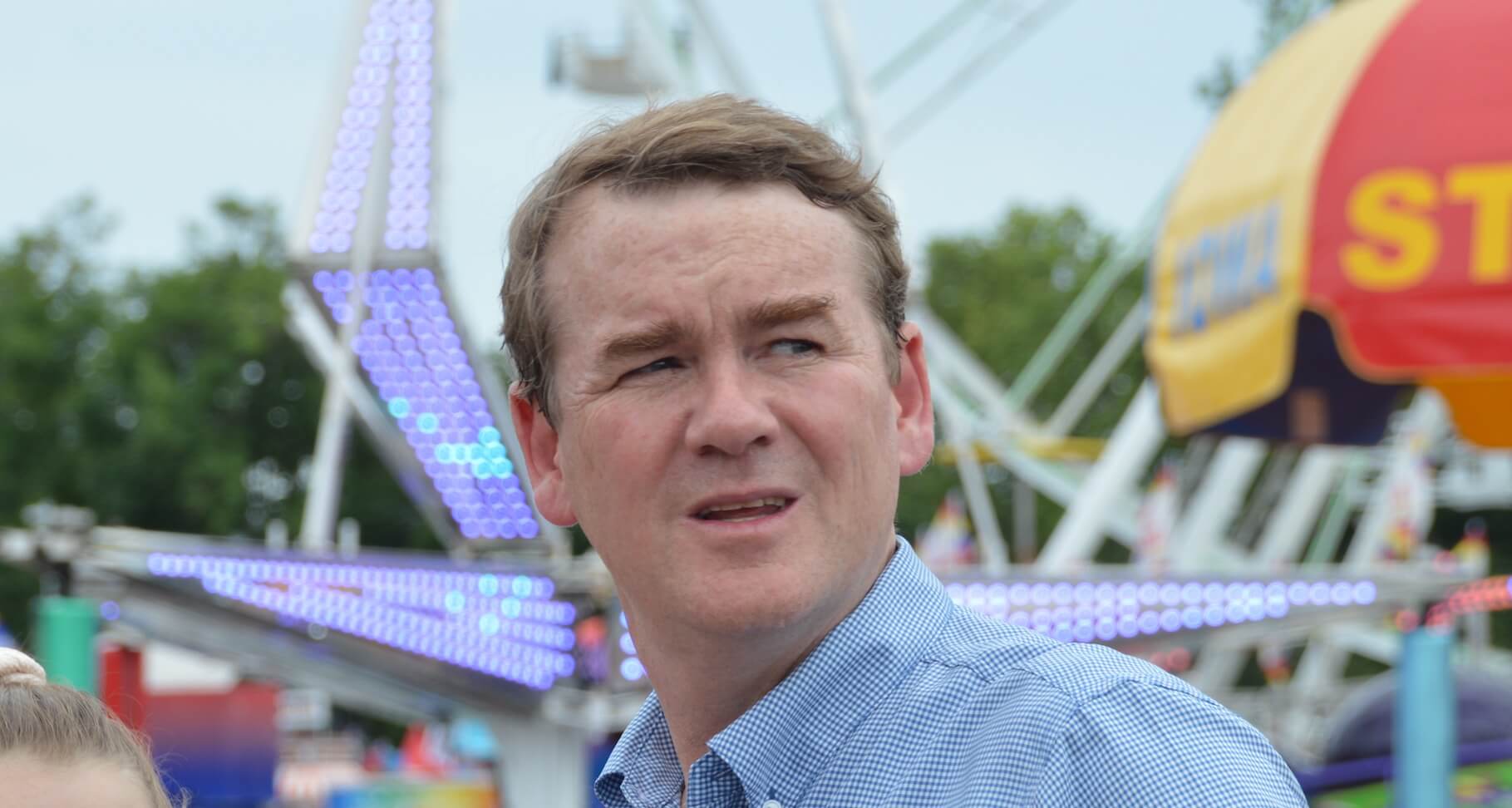
Much like Jay Inslee became the preeminent voice in the Democratic Party on climate change, Michael Bennet of Colorado has presented himself as the leading expert on public education. He spent yesterday in Iowa at a series of education-related roundtables and policy roll-outs, drawing on his experience as the former superintendent of the Denver Public Schools.
“I do believe that there’s nobody in the field who’s had the same kind of experiences I’ve had with public education,” Bennet said yesterday at a campaign event in Des Moines. “And I think that would help, when we have a world with the income inequality we’ve got, and our system of education is reinforcing that inequality. That’s important to understand and know why it’s happening.”
Although Bennet is not running a single-issue campaign on education, he’s made it clear that it’s his number-one priority; even his closing remarks in the last round of debates were regarding school funding.
For all of the 2020 Democratic field, Sec. Betsy DeVos is an important and obvious target when discussing education plans. If a Democrat wins the presidency, she’ll certainly be out of a job and her replacement won’t be anything like her.
But for Bennet, fixing the public education system is about so much more — but it is still a little bit about DeVos. When asked, on Thursday, who he would consider appointing to lead the Department of Education, Bennet joked, “well, probably the opposite of Betsy DeVos.”
Equal Must Be Equal
Bennett hosted an education town hall in Des Moines Thursday evening, and was joined by Shelly Vroegh, Iowa’s 2017 teacher of the year, who asked him questions about his newly-released education plan.
During his time, Bennet addressed early-childhood development, universal pre-k, teacher compensation, tuition costs and student debt, before opening it up to questions.
Bennett’s plan, ‘Equal Must Be Equal,’ has a 2028 commitment, which lays out a plan to ensure that all children:
- Arrive at Kindergarten ready to learn
- Can read by grade 3
- Are proficient in math and reading by grade 8
- Can think critically and solve problems
- Graduate high school with the ability to earn a living wage, not just the minimum wage
- Enter post-secondary education — if that’s the path they choose — prepared to learn without remediation and to persist to an on-time graduation
- Enter adulthood ready to participate in their democracy as informed citizens
The plan itself is quite long and detailed, but it outlines structural, funding and opportunity mechanisms to increase the resources available to all students from pre-k to high school to technical training to secondary education.
“We’re not investing in the generation below us like our parents and grandparents did for us, so it makes sense that they’re mad,” Bennet explained. “And we do have a student loan debt crisis in America, and that is a correct way to refer to it; and it’s not at the fault of the kids who took out the loans.”
[inline-ad id=”0″]
Investing Everywhere
Bennet’s plan aims to both 1) invest in education infrastructure and staff to raise the quality of heavily rural and urban schools to the quality of more affluent areas and 2) create more opportunities for folks to make a dignified living without a college degree.
“We should be beating down doors to fill [labor jobs], but we’re not because our school system isn’t aligned with the outcomes we need,” Bennett said, referring to companies struggling to fill technical jobs.
But to achieve this, the first of those two plans is incredibly important. Without creating equal opportunity for all children from a very early age, Bennet says, it will always be a struggle to create opportunity for them when they enter the workforce.
“We will provide federal-funding support to states and localities that make an effort to provide significant financial support to rural, high-poverty and otherwise underserved schools to close the financing gaps that lead to achievement gaps,” Bennet’s plan states.
[inline-ad id=”1″]
Understanding the economic impact and problems with our education system highlight Bennet’s background, with time in the education and business sectors. It’s also what makes him not a single-issue candidate; he understands how this single, important issue interacts with other issues and circumstances.
“The main issue that we’ve gotta confront is how few resources rural districts have in this country,” Bennet said Thursday. “If we’re going to have a rural America, we’ve got to decide that we’re going to have rural schools and hospitals; and there’s no way to have them without paying for them.”
by Josh Cook
Posted 9/6/19
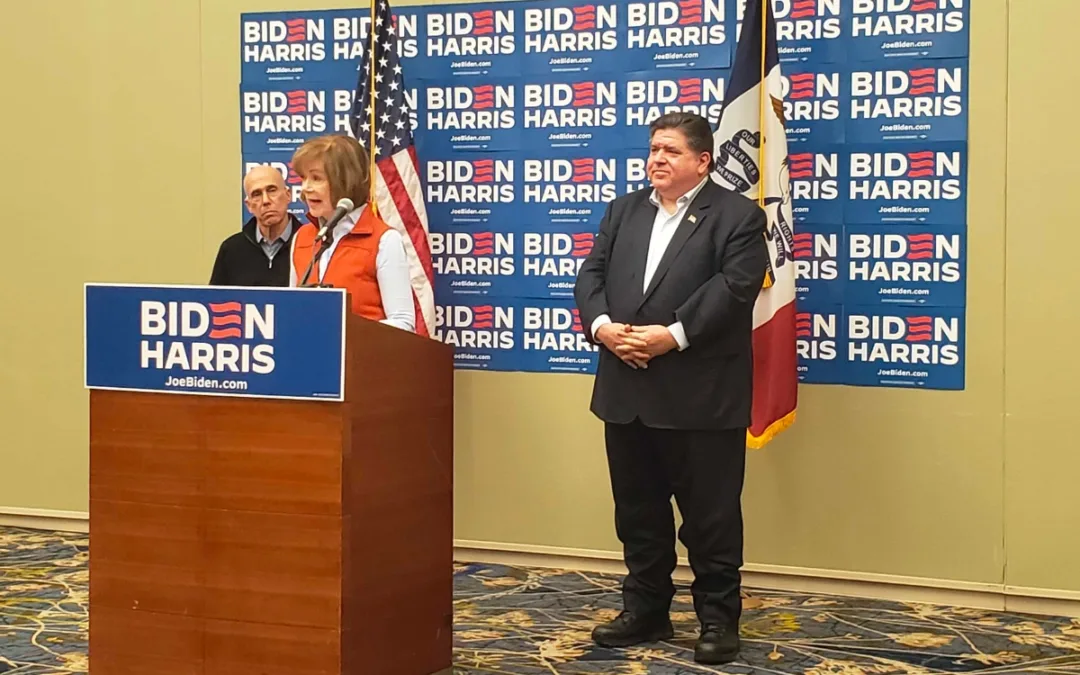
Original, heels or boots: Pritzker says leading Republicans are all MAGA
Illinois Gov. JB Pritzker said all three leading candidates in the Iowa GOP caucus—Donald Trump, Nikki Haley, and Ron DeSantis—represent the same...
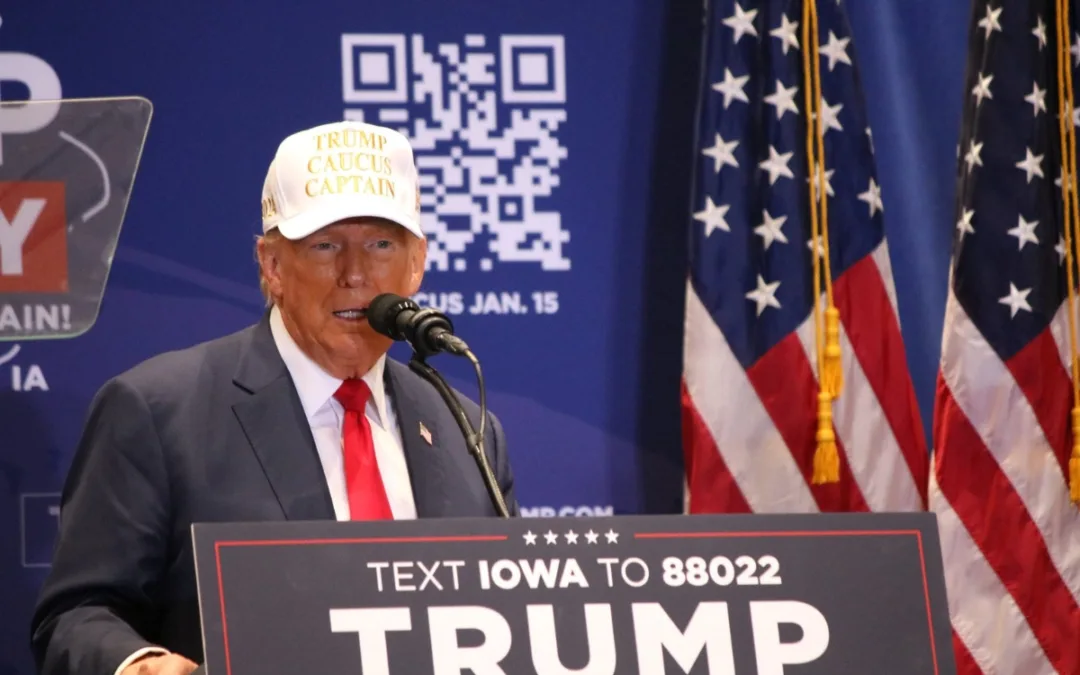
Trump tells supporters it is worth dying to caucus for him
Former President Donald Trump continues to encourage his massive base to turn out in droves for him during Monday’s Republican caucus and told an...

Climate change protesters disrupt Ron DeSantis event
Climate protesters disrupted a Gov. Ron DeSantis campaign event in Ames on Thursday night. Three protesters were escorted out of the room at...

Evangelical leaders predict huge caucus turnout, downplay endorsements
Iowa caucus candidates have racked up big-name endorsements—including a notable last-minute flip flop—but one evangelical leader said none of that...
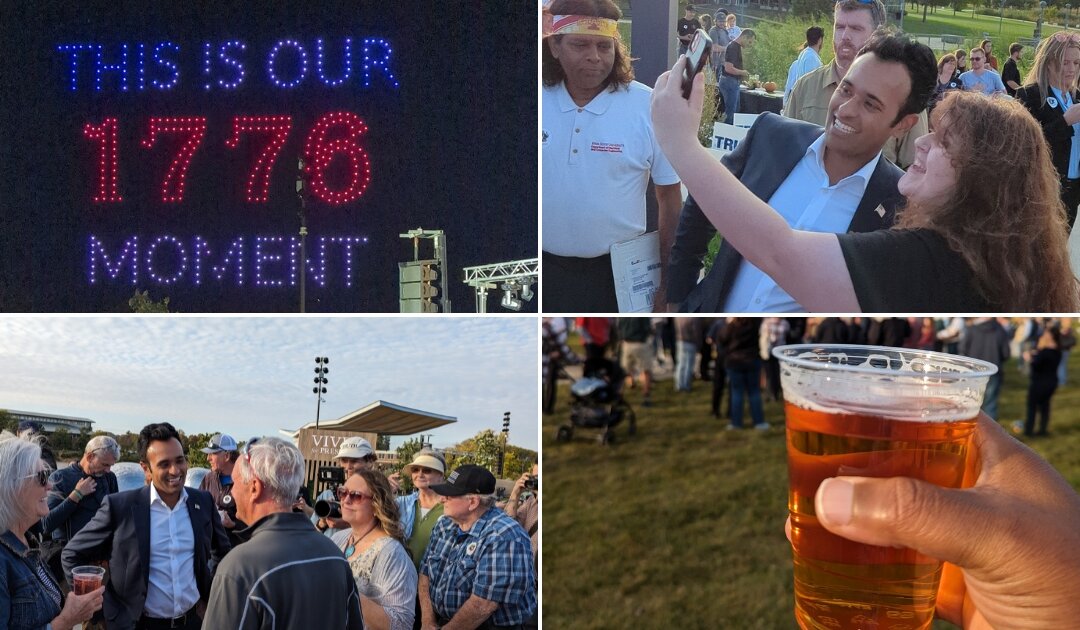
We went to Vivek Ramaswamy’s ‘Vektoberfest.’ Here’s what we saw
As I sat on a park bench eating a bacon-grilled cheese sandwich, drinking an Exile Ruthie straight from the tap, and chit-chatting with a few folks,...
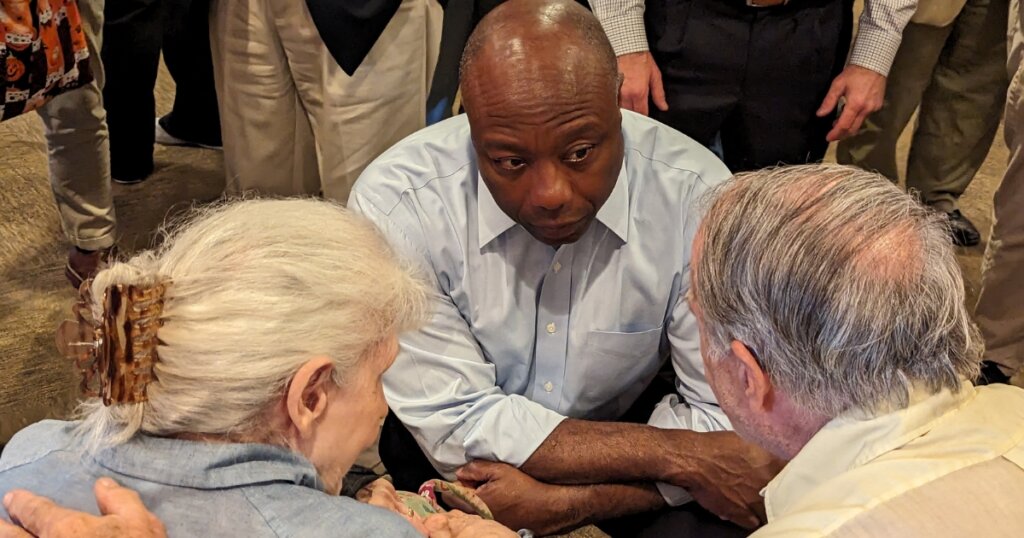
Tim Scott says kids need more exposure to conservatism
While many Republicans across the country have spent the last few years arguing that public schools are being used to indoctrinate kids into leftist...


